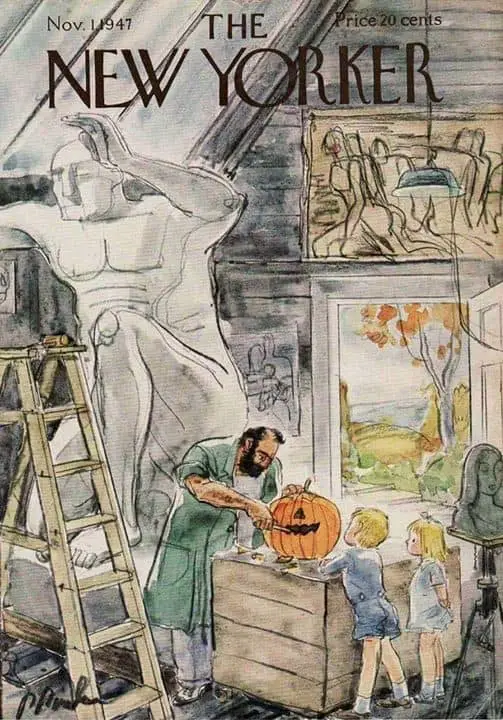On an episode of Reputation Rehab, a reality TV producer talked about her journalist background. When aiming for emotional, sensationalist TV, sometimes a journalist wants their subjects to cry. Here’s how to do it, apparently: Wait until they’re on the verge of tears, then lean forward and ask them gently, “Are you okay?”
Once in an elevated emotional state, one tiny bit of extended kindness can send someone over the edge. This doesn’t just apply to contestants on reality TV shows — it applies equally to all of us when we’re emotionally involved in a story.
Critic Roger Ebert saw many films in his lifetime and gave this subject a lot of thought. Based on an observation made Ebert, someone recently asked on Twitter for examples of moving moments in film in which one character does a beautiful, kind turn for another.
The exact Roger Ebert quote is as following:
I’ve been saying for years that I never cry during sad moments in the movies, only during moments about goodness.
Roger Ebert
And it comes from an article by Ebert called “I feel good! I knew that I would!” (2009). Ebert’s first personal example comes from Fargo (the film):
“Fargo” is far from a tearjerker, but at the end, when Marge Gunderson snuggles up to her husband Norm and tells him how proud she is about his design for the wildlife stamp, it made me feel so warm.
Roger Ebert
Fargo has a number of kind moments, because of Marge. Another example is Marge letting Lou off the hook with a joke after lightly correcting his police work. (I believe this explains in a very small way Jacinda Ardern’s popularity as New Zealand’s prime minister.)
New Zealand’s prime minister Jacinda Ardern lightened the mood at a press conference earlier this week by expressing her concern that one reporter was not getting enough sleep.
Independent
Ebert also offers a song example:
Stories about kindness are particularly meme worthy, demonstrating the extent to which audiences crave these stories.
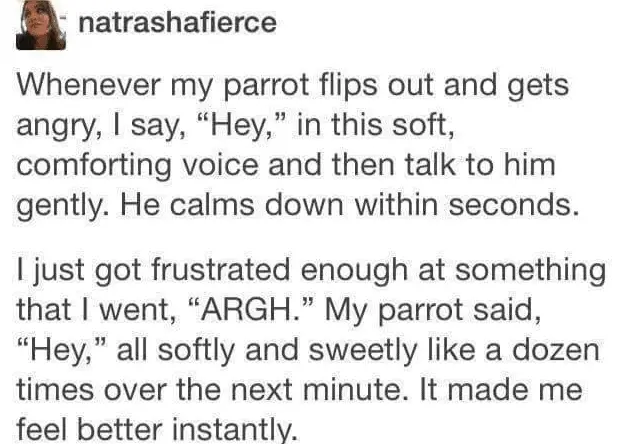
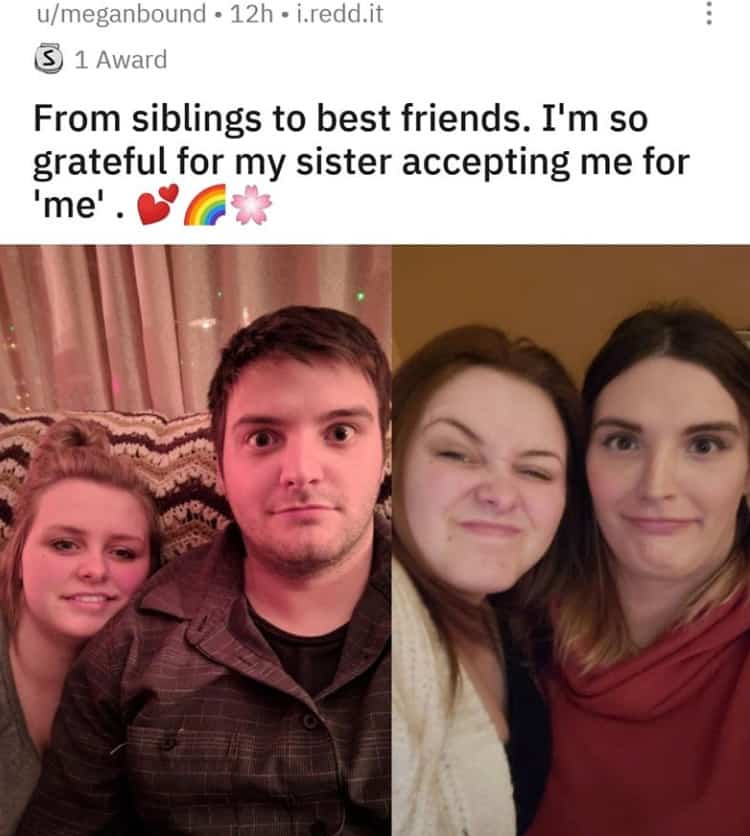
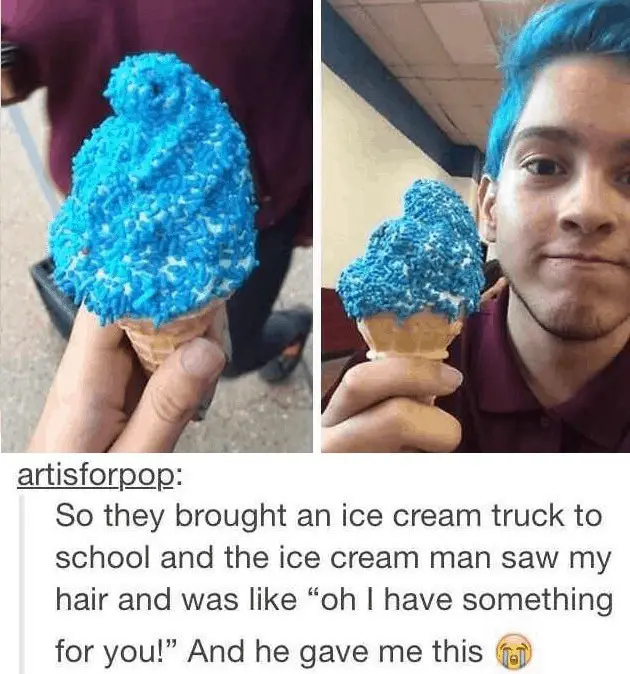
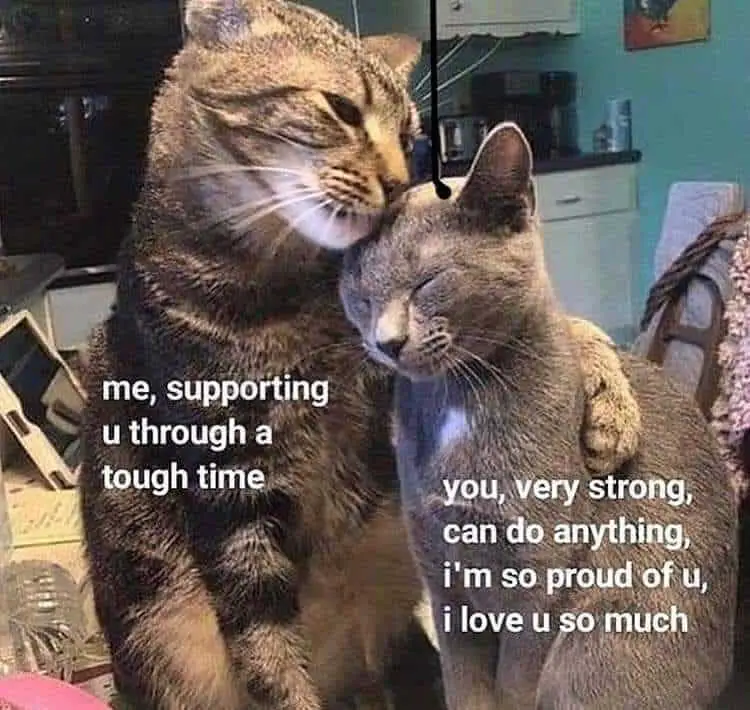
Roger Ebert went further and specified the specific emotions which move him whenever one fictional character does something very kind for another:
- generosity
- empathy
- courage [I would add self-sacrifice]
- the human capacity to hope
In reply to the Twitter question, people responded with the following examples of their own:
- Donovan’s Reef (1963): Elizabeth Allen bows to her half sister.
- Casablanca (1942): Victor Laszlo tells the band to play La Marseillaise.
- West Side Story (1961): Baby John’s actions in the final minutes, after the death scene.
- Little Women (2019): In Greta Gerwig’s adaptation, everything Chris Cooper does, especially when he’s on the stairs and also when he’s outside the house. Also when Ronan takes his arm and walks into the house near the end.
- The Fisher King (1991): Melvin and Howard together, who display decency and compassion towards each other throughout. Especially the line, “I really miss her Jack, is that okay? Can I miss her now? Thank you.”
- This Is Martin Bonner (2013): Ex-con Travis meets his estranged daughter but Martin, his social worker, says he won’t join him. Travis fumbles through awkward talk with his daughter, who’s all set to leave. Martin suddenly appears and sits. “Sorry I’m late”. This saves the day.
- The Rocketeer (1991): This story is filled with good people doing their best, but especially the moment gangster Eddie Valentine (played by Paul Sorvino) learns Neville Sinclair (played by Timothy Dalton) is a Nazi and draws the line. “I may not make an honest buck, but I’m 100% American.” [I suspect this one appeals more to Americans.]
- Galaxy Quest (1999): Mathesar says “My people have no commander.” Nesmith counters with, “Your people have a great commander” Everyone salutes. Also when the grumpy Dan tells the dying Quellek “By Grabthar’s Hammer, by the Sons of Warvan, you shall be avenged.”
- Spider-man 2 (2004): The train scene, when Spider-man saves the train, then the saved passengers pass Spider-man back to safety, acknowledge his revealed identity as ‘just a kid’, then the two much younger kids promise not to tell anybody.
- The Florida Project (2017): William Dafoe’s character as a beacon of kindness in a world unremitting in its apathy towards its most vulnerable members.
- Stranger Than Fiction (2006): Will Ferrell’s character, Harold Crick, lays down his life for a random kid in the street. Also, “I brought you some flours.”
- The West Wing: In the episode “In Excelsis Deo” (S01 E10)Toby goes out of his way to make sure the homeless vet gets a proper funeral.
- Midnight Run (1988): We’re kind of expecting a happy ending, but it happens so suddenly and the film goes from 100mph to tender in two seconds.
- Magnolia (1999): John C Reilly’s role as Officer Jim Curring, especially when he tells Claudia he lost his gun and he’s feeling humiliated and vulnerable.
- The Royal Tenenbaums (2001): Ben Stiller’s character Chas says “I’ve had a rough year, Dad”. Gene Hackman as Royal Tenenbaum replies, “I know, son.” This makes it onto a list of the 10 Most Affecting Wes Anderson moments. Also the line “How can I help?”
- The Last Detail: when it’s almost time for Buddusky and Mike to bring Larry to jail, they ask him if there’s anything left he wants to do. He says something about a picnic. Smash cut to Jack in the park trying to break firewood in the freezing cold for hot dogs.
- The Night of the Hunter (1955): When, after their harrowing journey, Mrs Cooper believes John. Also when he later meekly puts his hand on hers, and later at the end with the gift of the wrapped apple.
- Wings of Desire (1987): He’s trying to comfort the woman he’s in love with but he can’t fully touch her (though I think she feels his presence).
- Little Miss Sunshine (2006): When the silent, nihilistic teen instructs his sister to “GO HUG MOM”.
- The Office: When Michael Scott is the only one to show up to Pam’s art event and then offers to buy her drawing of the Scranton branch building.
- Win Win: The final scene
- Practical Magic: The phone tree scene. It’s a display of community finally coming together and being supportive, and a fun reversal of one of the ways they ostracized Sandra Bullock’s character.
- Twin Peaks: “Fire Walk With Me”. “When this kind of fire starts it is very hard to put out.”
- Close Encounters: Lacombe meeting Roy and Jillian at Devil’s Tower and realizing they have even more of a right to be there than he does. Truffaut underplays his kindness so perfectly.
- The Man Who Shot Liberty Valance: John Wayne standing up for Woody Strode’s right to have a drink in a saloon.
- Bladerunner 2049: Gosling discovering he’s not special or the “hero” of the story after all yet still choosing to do good is incredibly moving and where everything the movie was going for suddenly became clear.
- Batman Begins: Gary Oldman putting his coat around young Bruce. That was the moment that created Batman. The murder of his parents didn’t inspire an inciting incident for Bruce. It was Gordon’s kindness.
- Ikiru: Watanabe on the swing [an act of self care?]. Also during the funeral when the penny drops and they realize what kind of person Watanabe became.
- Guardians of the Galaxy 2: the reaper’s funeral scene and when Yondu’s friend starts cheering.
- The Best Years of Our Lives: Homer trying to discourage Wilma from getting involved with him
- Rudy: When the team all puts their jerseys on the coach’s desk
- Lord of the Rings: Many moments of kindness, such as when Aragorn and Arwen bow to the hobbits, or when Arwen sees her son. Also when everyone kneels to the hobbits at the end of Return of the King, or when Frodo stands up in the middle of the council saying “I will go, though I do not know the way”, coupled with the look on Gandalf’s face.
- Schitt’s Creek: Many kind moments, for example when Moira shows up at Alexis’s graduation and when Johnny stands up for Roland and the town when the old friends take them to dinner.
- A Christmas Story: When Ralphie’s dad is so happy as he watches him unwrap his last present
- Touch of Evil: Dietrich’s refusal to condemn Hank, and her delivery on “He was some kind of a man. What does it matter what you say about people?” at the end
- Meet Me In Saint Louis: when heartbroken thinking this is their last year in their beloved family house, Judy Garland sings “have yourself a merry little Christmas” to her sisters.
- Last Orders (2001): On his deathbed, Jack (Michael Caine) subtly informs his best friend Ray (Bob Hoskins) that he has known for years that Ray had an affair with his wife Amy (Helen Mirren). Jack has given Ray his blessings that they should be together.
- Melvin and Howard (1982): the moment Melvin comes to terms with his lot and takes joy with his brief time with Howard Hughes
- 30 Rock: The series finale
- Showlands: Joy explains to Jack that the pain to come is part of the happiness in the moment. When he tells her what his narrow idea of happiness is.
- Paper Moon: Addie notices that the widow they’re trying to sell the Bible to has seven kids with barely anything else and she gives it to her for free.
- Her: Especially when Theodore tries to convince Amy Adams’ character that her documentary about sleep is valid
- Red Beard: The entire movie is about granting people dignity and compassion
- Glow: when Alison Brie’s character goes in for an abortion and she looks at the ceiling and someone has painted an acoustic tile to look like blue sky and white clouds. Just the fact someone had the empathy to do that.
- Friday Night Lights: when Coach Taylor tells Saracen there’s nothing wrong with him. This is all the more powerful because it’s on the back of Saracen’s grief.
- Hard Boiled: The hero is in a running gunfight with a Mob enforcer in a hospital, and they end up with a cluster of terrified nurses and patients huddling between them. They both slowly lower their guns and wave the civilians out of the room. Tony would prefer to die rather than risk killing civilians.
- Hunt For The Wilderpeople: Bella is the kindness character, demonstrated to heartwarming effect when she does the birthday song.
- Shoplifters: Many compassionate and tender moments.
- Best of the Best: When the Korean team gives their medals to their opponents.
- The Fugitive: When Kimble comes across the Black boy at the hospital
- Tokyo Olympiad: the ending
- X-Men: Days of Future Past (2014): Logan’s line, “You’re best is enough.”
- The Night of the Hunter: Everything Rachel Cooper does.
- Gosford Park: When Elsie gives a handkerchief to Mabel, who is crying.
- Rushmore: Judd Hirsch says “Because I’m your friend.”
- Two Days, One Night: When Marion Cotillard’s character makes the choiceto sacrifice her job for the short term worker at the end.
- Into The Wild: Hal Holbrooke’s goodbye
- The Devil Wears Prada: Actually a cut scene. Andy rescues Miranda from an awkward moment with her ex-husband and Miranda mouths “thank you” to her. It knocked me breathless.
- Temple of Doom: Short Round tells Indy it’s time to go home, and he replies, “That’s right. All of us.”
- Sling Blade: When we see the bookmark Karl made that says YOU WILL BE HAPPY.
- Pollyanna (1960): “We looked for the good, and we found it, didn’t we?”
- Citizen X: when Fetisov tells Burakov how the investigation will proceed now. The decency and empathy, and a man learning that his ten years of completely thankless work have been seen and respected.
- A Christmas Carol: Scrooge’s epiphany
- A.I.: When Teddy produces the mother’s hair
- It’s A Wonderful Life: The whole town coming together
- My Best Friend’s Wedding: The bellhop played by Paul Giamatti comforting Julia Roberts in the hallway
- Nightingale: when the old couple feeds them, and the old man has Billy sit at the table with them.
- Antwone Fisher (2002): when Derek Luke’s character (called Antwone Fisher) reunites with his family
- About A Boy: When Hugh Grant’s character joins the kid on stage, all the while knowing he’ll be making a complete fool of himself. We know he’d never have done such a thing himself in high school, let alone six months prior.
- Wit: When Susie rubs lotion on Vivian’s hands
Someone even gave a computer game example. Final Fantasy VI: Right before you fight the Big Bad he gives this nihilistic villain monologue to which every one of your party members – which can be like 16 people – steps forward to talk about the friends and family they’re fighting for.
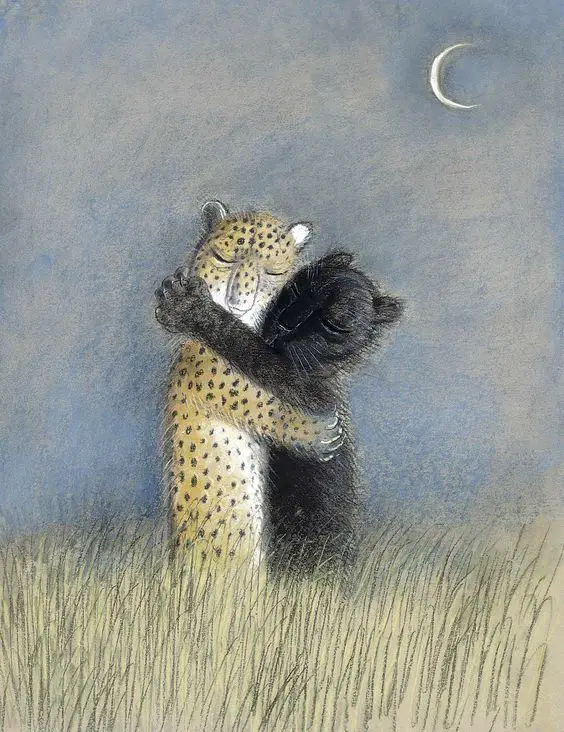
MY OWN EXAMPLES
- Juno: When the step-mother reminds Juno to keep away from the microwave, and fixes up her jeans. She is going against archetype as a kind and generous step-mother, which foreshadows how Juno will go against archetype as an irresponsible teenage mum by doing the best thing for the baby.
- Many examples in love stories are what Matt Bird calls “I understand you moments”, though an “I understand you moment” doesn’t always look like straight up kindness. Sometimes truth can be a type of kindness, such as when Connell says to Marianne in Normal People that everyone hates the confines of high school, not just Marianne, who goes out of her way to alienate. Later on, the real pathos comes when Connell tells Marianne that just because she’s been in an abusive relationship doesn’t mean there’s something unloveable about her. Marianne returns the favour of care when Connell goes through depression.
- Everything in Frog and Toad by Arnold Loebel
- In Charlotte’s Web when Wilbur says, “It’s a perfectly beautiful egg sac.”
OBSERVATIONS
KINDNESS AND GENRE
Kindness as a tool to evoke pathos is used across genres, not just in drama blends or in melodrama. The examples above run the gamut from crime comedy to superhero movies.
THE UNLIKELIHOOD SCALE
The more unexpected the kindness, the more affecting the moment. This explains why these examples involve so many male characters, even putting aside the fact that Hollywood skews towards men anyway.
The real world is a factor here. In our patriarchal world order, women (as mothers or as potential mothers) are expected to extend care and attention, and men are expected to be closed-off and stoic, so whenever vulnerability and openness comes from a man, it feels more resonant to an audience than if it were to come from a woman.
Feminist linguists have studied the kindness of apology and found that:
the most effective apology was by a male manager, followed by a female manager, a male subordinate and finally a female subordinate. … The less expected an apology, the more effective it is. …When an apology is not socially obligatory, [it] will be more accepted and more highly esteemed.
As explained by Deborah Cameron
I extrapolate that kindness is more effective in fiction, as in real life, when it is least expected.
Unexpectedness works for other aspects of satisfying story, too. Another satisfying experience: A stupid character does something smart.
KINDNESS IN FRONT OF A CROWD
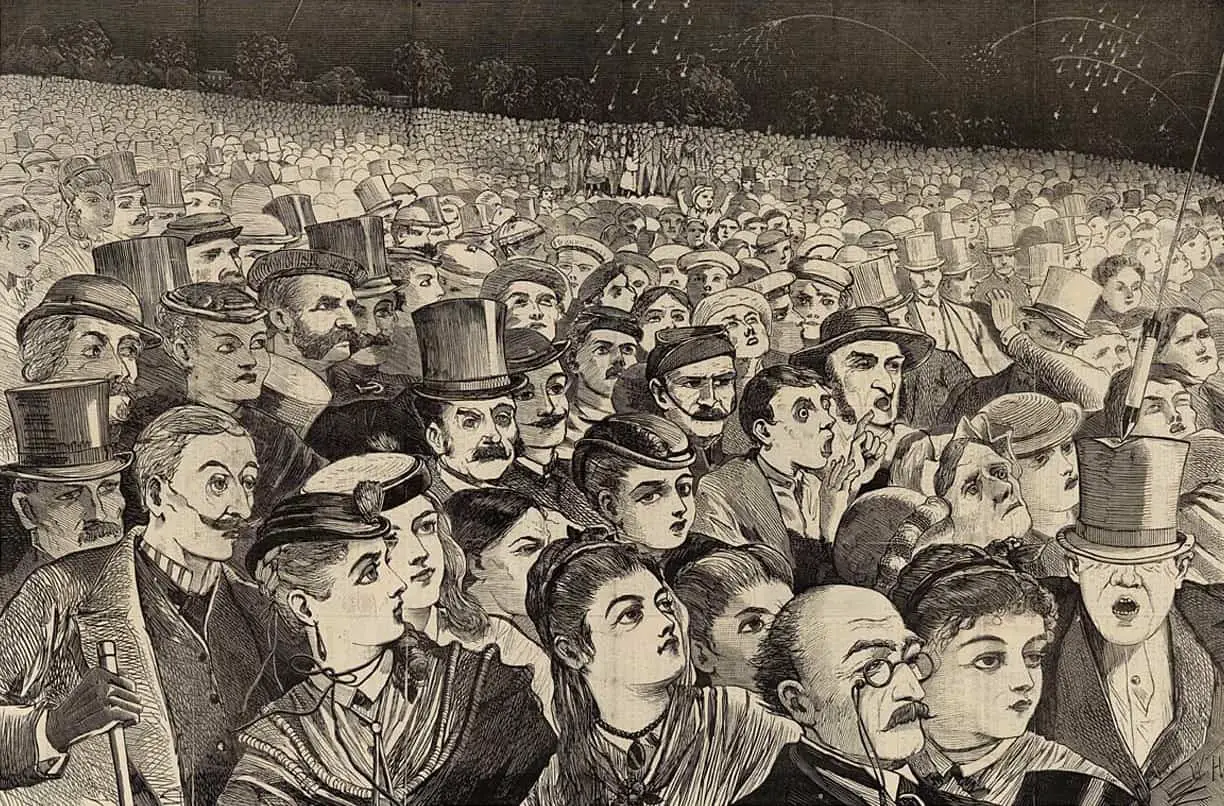
Ebert also noted the power of the crowd scene in conveying the magnitude of the kindness to an audience. As example he gave President Obama’s victory speech, which is a real world event, but the crowd watching on as a character does something kind, self-sacrificial or brave is commonly used across fiction, as well. When Spider-man saves a train, it’s a packed train, not an empty daytime one. That wouldn’t have worked as well.
[I was moved at Obama’s speech] because of those hundreds of thousands together in Grant Park, a sea of humanity, all races, all religions, all ethnicities, all together, affirming American hope.
Roger Ebert
As a non-American writing this, it’s clear to me from the Hollywood examples above that American citizens are especially moved by acts of patriotism that seem to bring everyone in their country together as equals. Ebert mentions Obama’s speech; another commenter on the Twitter thread mentions The Rocketeer. Each country has its own version of moving patriotism. As a New Zealand ex-pat, kapa haka never fails to move me. Kapa haka is performed in front of an audience, so I can’t say the ‘crowd scene’ so reminiscent of American stories is specific to America alone. We all like to see good acts witnessed.
I find this paradoxical because, in the real world, witnessed generosity is one thing, but ultimate sacrifice goes unseen and unacknowledged. In that case, the sacrificer doesn’t even get the accolades.
KINDNESS JUXTAPOSED AGAINST ITS OPPOSITE
Now and again you get a film that’s so sad you’re careful who you recommend it to. Grave of the Fireflies is one example — a feature length anime set in WW2 in the wake of the bombing of Hiroshima.
The viewpoint characters are brother and sister. The brother exhibits kindness across the entire film as he tries desperately to keep his younger sister alive. Though still a child himself, he acts as mother, father and provider. The boy’s kindness is amplified in contrast to the lack of generosity displayed by their extended relatives, who refuse to share their food.
The little sister dies of malnutrition, and the older brother does too, alone in a train station, surrounded by passersby who have become numb to the tragedy around them, unwilling or unable to help. The ending to this movie is notoriously sad, but would not have worked on us emotionally had it not also contained a spine of kindness. Cruel acts without the displays of kindness make us turn off our empathy. This, unfortunately, is a shameful aspect of human nature, and is exactly the aspect critiqued by the ending of this film.
Another personal example of moving kindness is Normal People, based on the novel by Sally Rooney. The story is at its most moving when two young lovers are extending kindness to one another. But these characters are also capable of great callousness. In the example of Grave of the Fireflies the boy is portrayed as Good while his relatives are portrayed as Bad. This is a childlike dichotomy. In contrast, the morality of Normal People is more realistic (hence the title). Normal people are capable of great kindness as well as great callousness towards each other, even — or especially — in love.
IRRESOLUTELY KIND CHARACTERS
Sometimes stories contain a character who is irresolutely kind, yet they’re not a Mary Sue. This might be a main character (e.g. Paddington Bear) or it may be a minor character, more like a mentor in a fairytale (e.g. a teacher or stand-in parent), such as the foster mother in Hunt For The Wilderpeople.
BEAUTIFUL, KIND AND MOVING MOMENTS IN CHILDREN’S STORIES
The same tricks of empathy are utilised in stories for children. For example, crowd scenes as kindness amplifiers are also used across in children’s stories. When Merida makes her big speech in Brave it’s in front of an audience inside her family’s castle.
I haven’t done a count up, but it’s possible dogs are used to distribute acts of kindness in children’s stories than they are in stories for adults. Dogs need to be anthropomorphised a little bit in order for this to work, and anthropomorphised animals are more common across children’s stories, but dogs more than any other kind of animal seem suited to this role:
Dogs notice, they share, they draw conclusions, they like it when they’re able to be of service and are touchingly grateful when they’re praised.
Roger Ebert

PICTURE BOOKS AND KINDNESS
The Elephant and Piggie picture books work so well because they are always about two characters who are kind towards each other, no matter their minor conflict.
An excellent example of the kindness of an on-the-page human sibling can be seen in Dogger by Shirley Hughes, in which a big sister gives her prize stuffed toy to her younger brother.
Another classic picture book about kindness is The Runaway Bunny by Margaret Wise Brown. But some classic picture books feature characters so very giving that they end up sacrificing their lives. This can be problematic if the sacrificial characters are femme coded. This is because of a long and troubled history of inequality in self-sacrifice, which is gendered. The Giving Tree and The Very Cranky Bear go too far. This is self-sacrifice for the sake of self-sacrifice, and isn’t earned. However, others are moved by it, able to close the story off from the reality of the world. (See: The Giving Tree — alternate ending.)
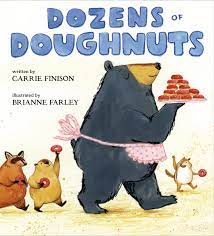
A generous but increasingly put-upon bear makes batch after batch of doughnuts for her woodland friends without saving any for herself in this delightful debut picture book about counting, sharing, and being a good friend.
LouAnn (a bear) is making a doughnut feast in preparation for her long winter’s nap. But just before she takes the first bite, DING DONG! Her friend Woodrow (a woodchuck) drops by. LouAnn is happy to share her doughnuts, but as soon as she and Woodrow sit down to eat, DING DONG! Clyde (a raccoon) is at the door. One by one, LouAnn’s friends come over–Topsy (an opossum) and then Moufette (a skunk) and then Chip and Chomp (chipmunks)–until it’s one big party. LouAnn welcomes her surprise guests and makes batch after batch of doughnuts, always dividing them equally among her friends. But she makes one BIG miscalculation. Soon LouAnn’s kitchen is bare, winter is near, and she’s had nothing to eat at all!
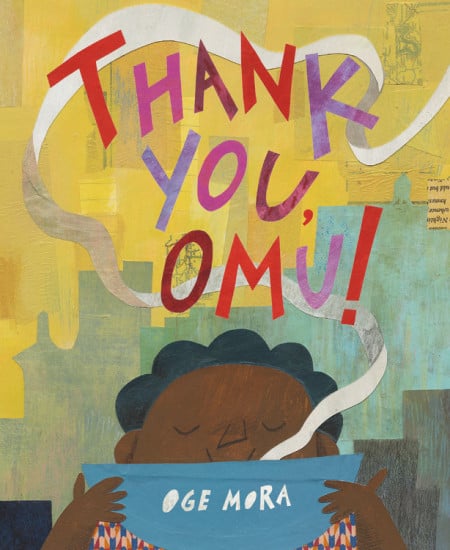
A generous woman is rewarded by her community in this remarkable author-illustrator debut that’s perfect for the Thanksgiving season, perfect for fans of Last Stop on Market Street.
Everyone in the neighborhood dreams of a taste of Omu’s delicious stew! One by one, they follow their noses toward the scrumptious scent. And one by one, Omu offers a portion of her meal. Soon the pot is empty. Has she been so generous that she has nothing left for herself?
A more modern standout example of kindness is in the picture book Z Is For Moose. Jon Klassen’s We Found A Hat is a more muted example of kindness in the form of sacrifice in the name of friendship. The Charlie and Lola books are all about the sibling kindness.
MIDDLE GRADE AND KINDNESS
Off the top of my head I can think of many picture book examples of pathos inducing kindness. There are plenty of examples of enemies who become firm friends in middle grade But many middle grade authors make use of a popular character dynamic which outright prevents this kind of pathos in their stories. This also applies to TV shows, though shows which draw in the picture book audience as well as the middle grade audience tend to be more kind (Bluey is an outstanding Australian example which demonstrates kindness in every episode.)
Paddington Bear was a middle grade (universal) series of books which embraced kindness. The movie adaptations have taken some of that. At the end of Paddington 2, Paddington’s neighbours reveal that they all chipped in to bring his Aunt Lucy to London. Paddington had been doing nice things for people all along, and didn’t expect to be rewarded in kind.
Dick King-Smith (1922-2011) was another example of a middle grade writer who writes with kindness. (Notice how middle grade books about kindness tend to span the demographics of age.) His Sheep-Pig story was adapted for film as the Babe franchise. Babe the pig is a relentlessly kind and decent character.
The end of How To Train Your Dragon contains a moment of kindness and pathos. Toothless prevents Hiccup from falling. We see both of their missing limbs.
Roald Dahl stories contain moments of kindness as well as plots of scheming and revenge. At the end of Matilda, some people find it emotional when Matilda’s parents sign the adoption papers. “You’re the only daughter I ever had, Matilda. And I never understood you, not one little bit… Who’s got a pen?”
Pixar films contain many sacrifices which achieve the same effect, for example “Thank you, you’re welcome” at the climax of the Moana movie.
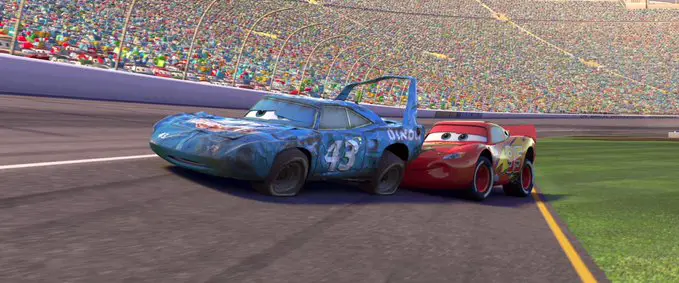
Hayao Miyazaki’s films also contain moments of pathos and kindness. In My Neighbour Totoro everyone is kind to each other. The parents never doubt their daughters, and even the forest monster is kind. In Spirited Away Chihiro gives medicine to No-face even though she doesn’t know that her parents will be okay without it. (In Japanese culture, your family equals yourself.)
This is probably why it is especially moving when we do see kids, especially siblings, extending kindness to one another. As in the Little Miss Sunshine example above, sibling pathos makes use of audience expectations of (un-)likelihood.

Audiences don’t expect big strong Hollywood heroes to break down emotionally; likewise, readers don’t expect big sisters to extend kindness towards their younger brothers. When characters break archetype, pathos is magnified.
YOUNG ADULT LITERATURE AND KINDNESS
In young adult literature pathos inducing kindness makes a comeback, with a stand out example being Katniss Everdeen, who initially shows her capacity for goodness by making a sacrifice for her little sister. However, Katniss volunteering as tribute functions more as a Save the Cat moment than as one which moves us to tears. The tears come later, especially during the moments involving Cato. These, of course, require moments of great kindness, magnified by vulnerability and the prospect of imminent death.
Sometimes being offered tenderness feels like the very proof that you’ve been ruined.
Ocean Vuong, On Earth We’re Briefly Gorgeous
FOR FURTHER INVESTIGATION
Word of the day: 涙ぐましい(なみだぐましい) Can mean “painful” or “touching” depending on context. 涙ぐむ is to be tearful, and ぐむ itself is to start to appear.
@RichardMedh
It’s a symbol of our age that witnessing a strong man tell another man “I didn’t properly understand your experiences and I said something hurtful, I’m genuinely sorry” is considering bad dialogue because it’s such a rare occurrence in real life https://t.co/IhVGOeAaBi
Houston Coley (@artwithinpod) April 17, 2021
One person in the twitter thread offered a counter example, as Kill the Dog is to Save the Cat moments.
This isn’t exactly decency or compassion, but in THE BAD NEWS BEARS when the pitcher for the opposing team catches the ball, and refuses to throw it to the basemen. Normally “Fvck you, Dad” isn’t a heartwarming sentiment, but here, it’s beautiful.
Header illustration by Perry Barlow (1894-1977) 1947
